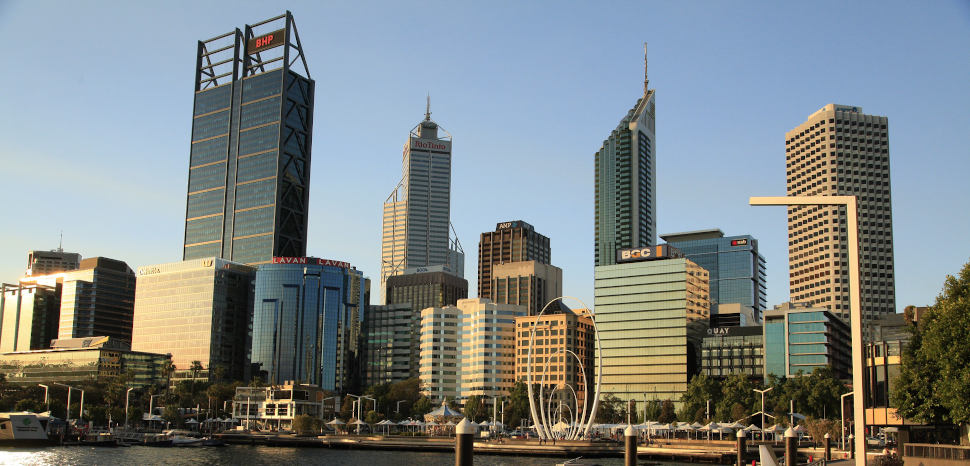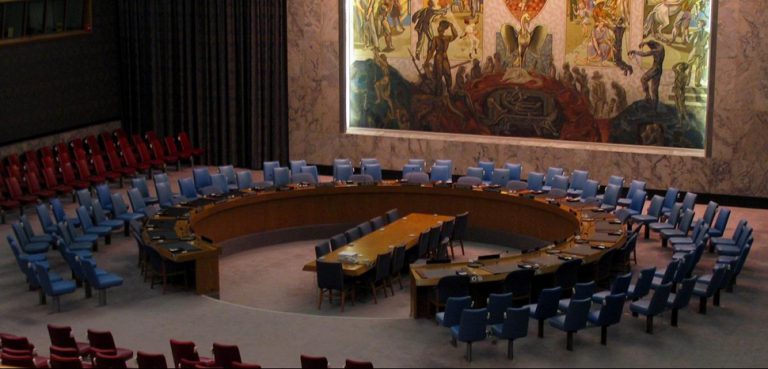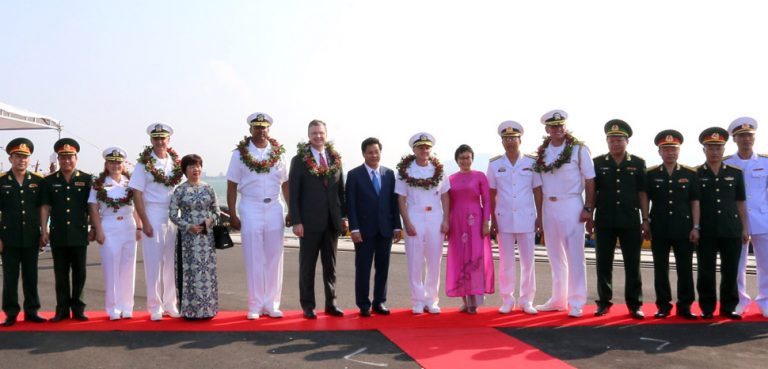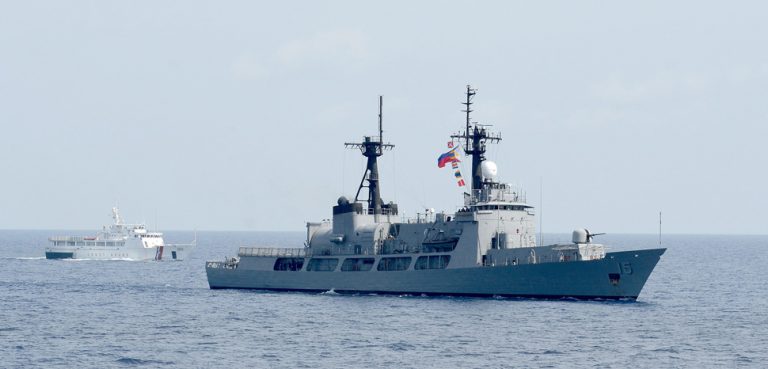Having established defense relations in 1998 and signed a pact upgrading ties to a strategic partnership in March 2018, Vietnam-Australia defense ties have been developed substantially both in scope and scale. Yet, military cooperation among both sides has not been significant. Currently, given the mutual interests of Vietnam and Australia, as well as the geopolitical landscape of the Indo-Pacific region, it befits the two countries to foster bilateral defense ties.
Shared interests
Vietnam and Australia have a greater need for each other under the Indo-Pacific strategic environment that exists today. Vietnam seeks to diversify its foreign relations with other actors in the region, especially major ones, according to Vietnam’s four major foreign policy principles. Regarded as one of the major actors in the Indo-Pacific region due to its close relations with key regional powers and its economic and military power, Australia is not only a reliable partner for Vietnam but also for other ASEAN countries. Being a chair of ASEAN this year, if Vietnam was to foster its military ties with Australia, it could leverage its regional and international prestige as a responsible and efficient leader of ASEAN. At the same time, Vietnam would be a bridge for further cooperation between ASEAN and Australia, especially in the defense and security sphere, which is vital for Vietnam’s ambition to become a full-fledged middle power.
As for Australia, in recent years it has considered ASEAN as pivotal in the Indo-Pacific, geographically, diplomatically and strategically, and Canberra supports ASEAN-centrality in the Indo-Pacific’s most important regional architecture, as noted by Australian Foreign Minister Julie Bishop. Australia thus seeks further cooperation with ASEAN countries to nurture and defend a stable and rules-based order in the Indo-Pacific. Hence, it would be necessary for Australia to strengthen its relations with Vietnam, especially in the realm of military and defense. As mentioned previously, Vietnam is ASEAN’s chair this year, and it is also proven to be a strong leader of the bloc with its economic, political and diplomatic achievements so far. As such, fostering defense ties with Vietnam is in the interest of Australia, enabling it to deepen its strategic relations with ASEAN.
It is also noteworthy that the forging Vietnam-Australia military cooperation dovetails with both sides’ interests in the South China Sea. Both Vietnam and Australia have significant interests in these waters. For Vietnam, it has territorial claims in the South China Sea, and the country sees South China Sea disputes as a threatening factor for regional stability, peace, and prosperity. For Australia, despite not being directly involved, it shares the same concerns as Vietnam over growing Chinese power in the South China Sea. Because of its geographical location, Australia’s economy depends on the safety of maritime routes, and the South China Sea is one of the most vital among them. More importantly, China’s increasing assertiveness in the region threatens the stability that Vietnam and Australia seek to maintain in the South China Sea, so Vietnam and Australia have the same incentives to contain China’s military actions. In these regards, deepening bilateral defense ties matters for both countries.
A favorable landscape
The current regional landscape would be conducive to both countries to cement their bilateral defense ties, making the fostering of their military relations more vital. Although the COVID-19 pandemic has seriously hit the two countries, it may, in some aspects, present an opportunity for Vietnam and Australia to enhance their military relations. Vietnam and Australia have both responded to the pandemic well, evidenced by their relatively low number of cases and deaths compared to other countries in the region. Notably, Indonesia, long deemed the most important strategic ally of Australia in ASEAN, is suffering greatly from the pandemic with the largest number of deaths in Southeast Asia. This implies that Australia cannot put all its eggs in one basket and must diversify its regional partners. Vietnam, given its leadership of ASEAN, its shared interests with Australia and its geostrategic location at the heart of the Indo-Pacific, is perhaps the best alternative for Australia.
In addition, the regional strategic environment is now gradually more favarable for the two countries to foster their defense cooperation. Apparently China is one of the most important factors hindering further military cooperation between Vietnam and Australia. Despite sharing the same concerns about China as a destabilizing force in the South China Sea, neither Vietnam nor Australia wants to risk relations with China by promoting their defense cooperation, due to their economic dependence on China. However, the fact that China is facing a plethora of internal and external challenges may make it less able to exert significant influence over Vietnam and Australia as it did before. Regardless of controlling COVID-19 well, China is economically suffering from the pandemic, with a sharp decline of GDP growth, and it has been blamed for its “secrecy, deceptions and cover-up” for the global spread of COVID-19. Besides, China’s ramping up military presence in the South China Sea has raised a great threat for Indo-Pacific countries, and several ones have joined the ‘battle of diplomatic notes’ against China, most notably the United States.
Given the difficulties that Beijing is facing, Vietnam and Australia have been changing their policy toward China, paving the way for them to gradually strengthen the bilateral defense ties in the future. For Australia, it has explicitly rejected China’s maritime claims in the South China Sea, meaning it has arguably abandoned its neutrality on South China Sea disputes. In July, Australian warships also conducted naval exercises with the US and Japan in the Philippines Sea, where China claims territory. This can be seen as a reaffirmation of Australia’s stance on the South China Sea disputes and its commitment to address common security issues. In the case of Vietnam, it has been the front-liner in ASEAN against China in the disputes, and in its latest Defense White Paper 2019, Hanoi declares that it “will consider developing necessary, appropriate defense and military relations with other countries.” This can be viewed as an implicit message for major powers that Vietnam might to a certain extent go further in military relations with other countries if China’s actions in the South China Sea cross its redline.
Policy recommendations
First and foremost is that both sides should be more proactive in extending military relations. Up until now, there have been no major military trade deals or substantive capacity-building activities between Vietnam and Australia, which is a remarkable limitation in the Vietnam-Australia strategic partnership. Defense and security cooperation is among three priority areas agreed by both countries for the period of 2020-2023. In this respect, a genuine Vietnam-Australia strategic partnership is the one with closer defense ties. Therefore, Vietnam and Australia should work toward more significant military activities, such as joint maritime security capacity-building, technology transfer or working together to complete deals on providing Australian modern defense equipment to Vietnam.
Next, Vietnam and Australia should accelerate bilateral defense cooperation, but in a gradual pace so as not to stir China’s anxiety. It is crucial for the two countries to bear in mind that China is only facing a temporary setback and may return to strength, thereafter putting pressure on Vietnam and Australia’s closer military ties. Because of this, Vietnam and Australia should step further in their military relations in a cautious way so that they could both achieve their defense interests and avoid agitating China.
Additionally, the two countries could utilize existing security mechanisms in the region as a supplemental channel to cultivate Vietnam-Australia bilateral military ties. Both countries are members of multilateral regional security institutions, such as the ASEAN Regional Forum, ASEAN Defense Ministerial Meeting Plus, Council of Security and Cooperation in the Asia Pacific, to name a few. Multilateral security mechanisms can address regional issues more effectively than bilateral ones to a certain degree, thanks to their inclusiveness in terms of members and scope of issues. By cooperating in these mechanisms, Vietnam and Australia would have a better understanding of regional security issues, enabling both sides to drive defense ties in a trajectory that is beneficial for them and for the whole region.
The bottom line is, with what Australia and Vietnam are looking for and have done so far, it matters for these two countries to deepen the bilateral military cooperation. The forging of defense relations suits the thinking of both sides in terms of geostrategic, at least in the near future, so the prospect of a flourishing Vietnam-Australia defense ties is realistic – provided both sides pursue this prudent policy.
The views expressed in this article are those of the authors alone and do not necessarily reflect those of Geopoliticalmonitor.com or any institutions with which the authors are associated.




